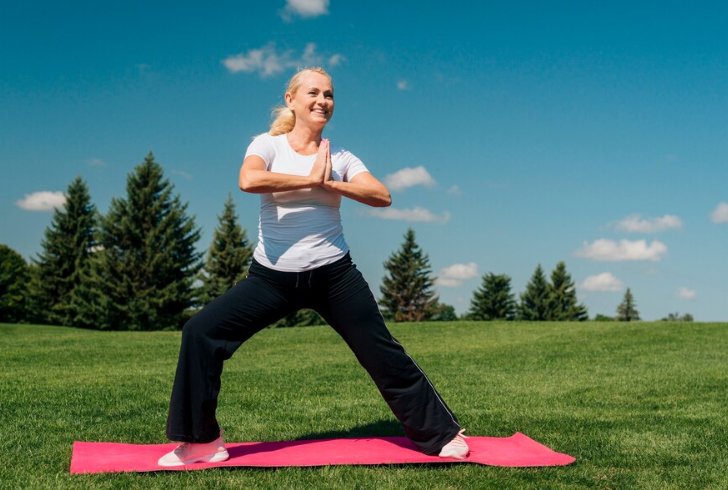Recent research has shed light on a remarkable journey undertaken by a group of women who successfully reduced their biological age by an impressive average of 5 years within a mere eight weeks. This transformative program combined lifestyle adjustments in diet, exercise, sleep, and relaxation techniques, showcasing the potential to reverse certain aspects of aging.
Understanding the distinction between biological and chronological age is essential in this context, as it offers insight into how lifestyle choices can impact overall health and well-being.
Understanding Biological Age
Biological age, often referred to as epigenetic age, reflects the condition of one’s cells rather than just the number of years lived. In contrast, chronological age is simply the total time someone has existed. The epigenome comprises chemical modifications that influence how genes function, shaping health and longevity.

Factors such as diet, stress, and environmental toxins can alter this epigenetic landscape, potentially leading to increased biological age. Notably, these changes can be reversible, suggesting that adopting healthier habits may rejuvenate the body at a cellular level.
The Study
In a groundbreaking study, six women aged 46 to 65 participated in an eight-week program designed to enhance their overall health. With an average chronological age of 58 years, all participants began with a biological age that was younger than their chronological age—except for one individual.
Remarkably, five of the women experienced a decrease in biological age, with one participant achieving a reduction of up to 11 years. The average reduction across all participants was 4.6 years, indicating significant potential for lifestyle interventions to influence aging.
Key Elements of the Program
The program emphasized several vital lifestyle changes:
1. Dietary Adjustments – Participants incorporated a variety of nutrient-dense foods, such as:
Dark, Leafy Greens – Two cups daily for essential vitamins and minerals.
Cruciferous Vegetables – Another two cups to provide anti-inflammatory benefits.
Colorful Vegetables – Three cups for antioxidants and phytonutrients.
Healthy Fats – A quarter cup of pumpkin and sunflower seeds to promote heart health.
Beets and Eggs – These are included for their rich nutritional profile.
Probiotic and Phytonutrient Supplements – To support gut health and overall wellness.
2. Physical Activity – Regular exercise was a cornerstone of the program. Participants were encouraged to engage in at least 30 minutes of physical activity daily, enhancing cardiovascular health and boosting mood.
3. Sleep Hygiene – Prioritizing sleep was crucial, with a recommendation to aim for a minimum of seven hours each night. Quality sleep plays a vital role in overall health and biological rejuvenation.
4. Relaxation Techniques – Participants practiced breathing exercises twice a day, which contributed to stress reduction—an important factor influencing biological age.
5. Hydration and Nutrition – Drinking eight cups of water daily and fasting for 12 hours after the last meal were also emphasized, supporting metabolic health and cellular function.
Despite the challenges of adhering to the program, participants managed to stick to the guidelines about 82% of the time. The support of nutritional coaching likely played a significant role in their success, motivating them to stay committed to the lifestyle changes.
The Impact of Stress on Biological Age

Interestingly, the study also included a male participant who withdrew due to a family emergency. Initially 71 years old, he had a biological age of 57.6. Following his withdrawal, his biological age increased to 61.6 years, highlighting how stress can accelerate aging.
Previous studies have demonstrated that stress can lead to sudden spikes in biological age, particularly in individuals with chronic mental health conditions. This reinforces the notion that managing stress is crucial for maintaining a youthful biological age.
A Path Toward Reversal
The results of this study present a compelling case for how lifestyle changes can significantly affect biological age. By making conscious decisions about diet, exercise, sleep, and stress management, individuals may not only improve their biological age but also enhance their overall quality of life. The power of these lifestyle interventions extends beyond mere numbers; they may foster a renewed sense of vitality and well-being.
As this research illustrates, the journey toward reducing biological age may begin with simple yet impactful choices. By integrating these practices into daily life, anyone can embark on a path toward rejuvenation and longevity.




